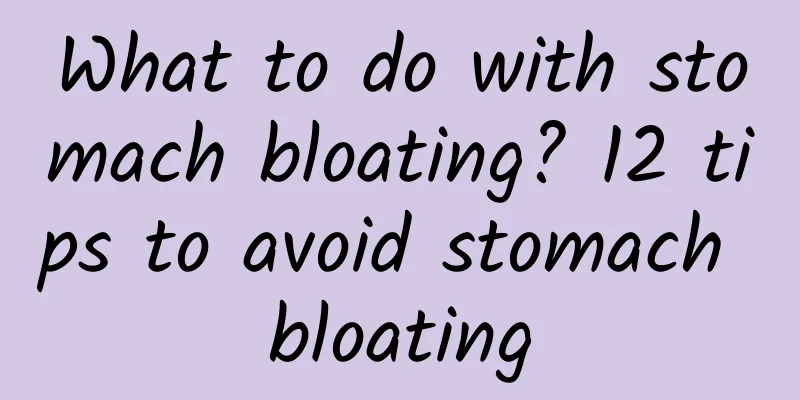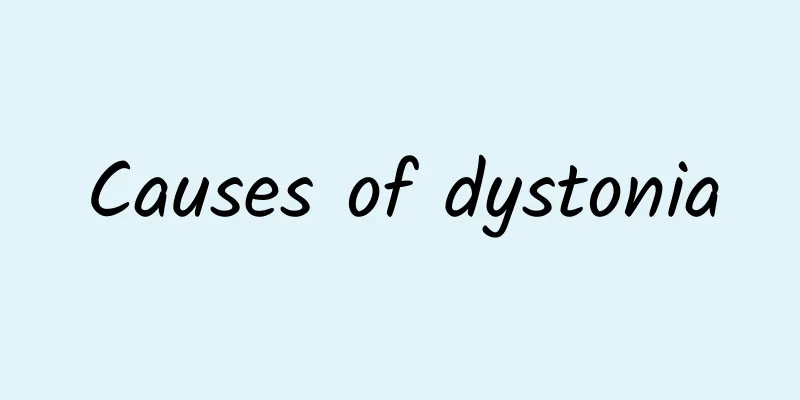Can I brush my teeth the next day after tooth extraction? Dentists recommend this

|
Because oral problems are not taken seriously by people, many people have cavities and broken teeth. Dentists often recommend extracting these cavities and broken teeth to eliminate future troubles. So what should you pay attention to to maintain oral hygiene after tooth extraction? In fact, you can have your tooth extracted the next day! The wound has just healed after tooth extraction. At this time, the local fibroblasts have just extended and grown from the alveolar bone wall toward the blood clot, and gradually organized the blood clot to make it firm and strong. Regarding the question of how long you can brush your teeth after tooth extraction, generally speaking, you should not rinse your mouth, let alone brush your teeth, within 24 hours after tooth extraction. If you are in a hurry to rinse your mouth and brush your teeth, you may rinse or brush away the blood clot and cause further bleeding, or cause an empty tooth socket and lead to unbearable pain "dry socket", which will prolong the healing time. After tooth extraction, you must pay attention to protecting the blood clot. Do not rinse your mouth on the same day, do not chew food with the side where the tooth was extracted, do not lick the wound frequently, and do not suck or spit repeatedly, so as to avoid destroying the blood clot due to the increase in negative pressure in the mouth. You can eat two hours after the operation, and the food for two days after the operation should be warm, cool, and soft. Try to avoid the wound when brushing your teeth the next day. The tooth extraction wound is filled with blood, and a blood clot begins to form in about 15 minutes. After a few hours, the gum tissue contracts, making the tooth extraction wound smaller. After 24 hours, connective tissue gradually grows into the blood clot. After 3 to 4 days, the gingival epithelium grows from the surrounding area to the surface of the blood clot and completely covers it. After 2 weeks, bone tissue gradually grows. Spit out the gauze roll half an hour after the tooth is extracted, and the bleeding will generally stop. It is normal to have a small amount of blood in the saliva within 1 to 2 days after tooth extraction. If there is still obvious bleeding, it is called post-extraction bleeding. Most of them are caused by local reasons. It is normal to have mild pain in the wound 1 to 2 days after tooth extraction. If the pain worsens, there may be an infection. Common complications include acute cellulitis, mandibular osteomyelitis, etc. |
<<: Can exercise get rid of gallbladder polyps?
>>: What are the early symptoms of ringworm?
Recommend
Light bleeding after menstruation
Menstruation is a physiological response that occ...
How long does it take to recover from marijuana withdrawal symptoms?
Drugs are strictly prohibited in our country, but...
What tea can clear the lungs, reduce phlegm and relieve cough?
Usually, colds or bronchitis and other diseases o...
Late-stage symptoms of bowel cancer
With the improvement of living standards, people&...
What causes kidney stones and hematuria?
Urinating blood is very scary. When you urinate, ...
My hands and feet are cold and I am shaking all over. What's going on?
There are many sayings in life that diseases star...
The efficacy and function of Bazhen Yimu Tablets
Bazhen Yimu Tablets is a traditional Chinese medi...
What are the benefits of drinking safflower in water that you don't know about?
Safflower is a Chinese herbal medicine that we ar...
What are the symptoms of early pregnancy? What should we pay attention to?
Morning sickness is a symptom of early pregnancy....
Feeling hot in the morning
Morning is the most important time of the day. If...
Can toothpaste reduce swelling?
Toothpaste has a good effect in reducing swelling...
I broke my jaw and it hurts after getting stitches. Why?
The chin is a protruding part, and it is easy to ...
Can Chinese medicine dredge the fallopian tubes?
Fallopian tube blockage is a very serious problem...
What is the male chlamydia test?
Chlamydia is different from ordinary bacteria. It...
What are the key points of TCM health preservation?
Nowadays, people pay more and more attention to h...









